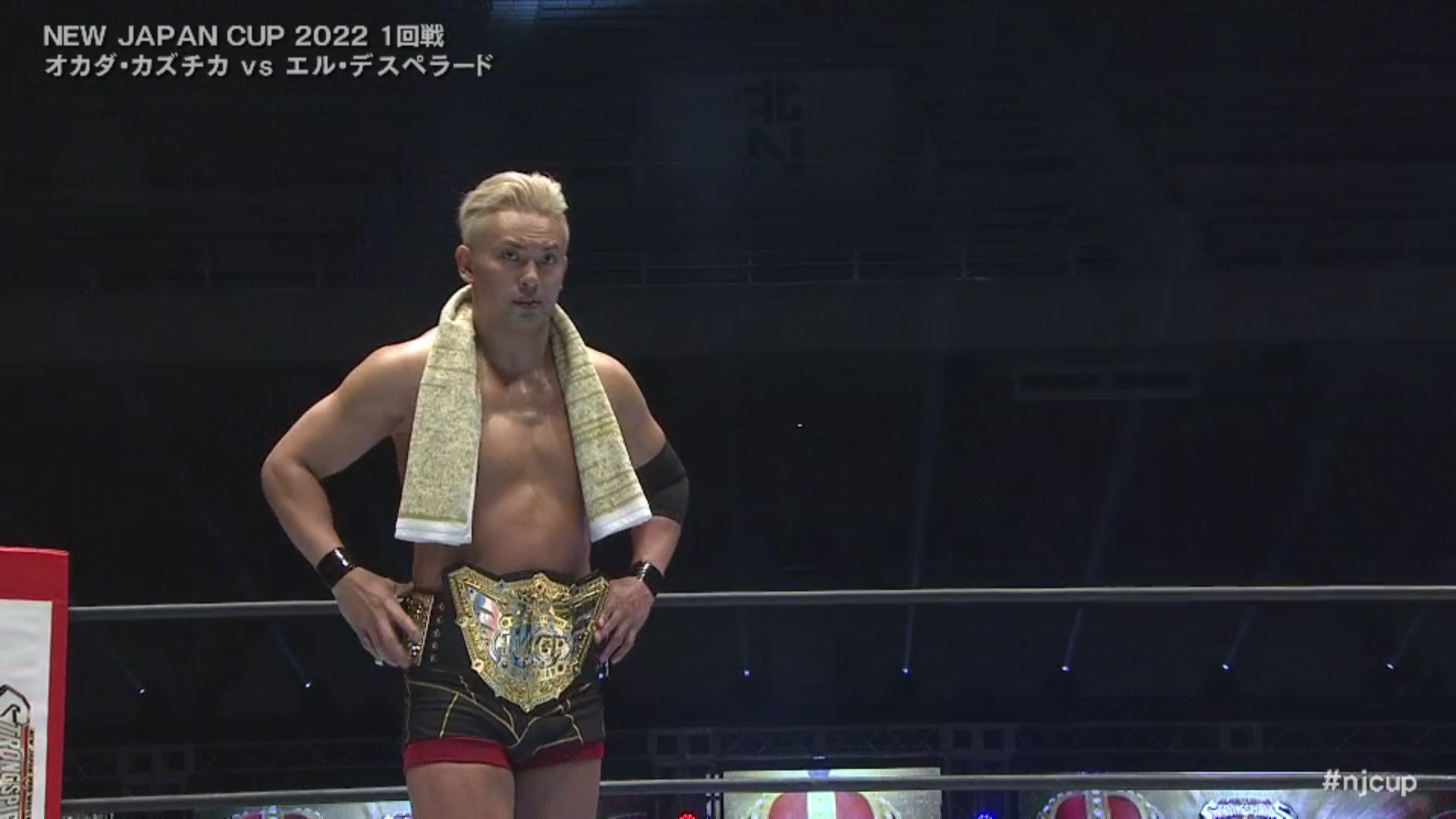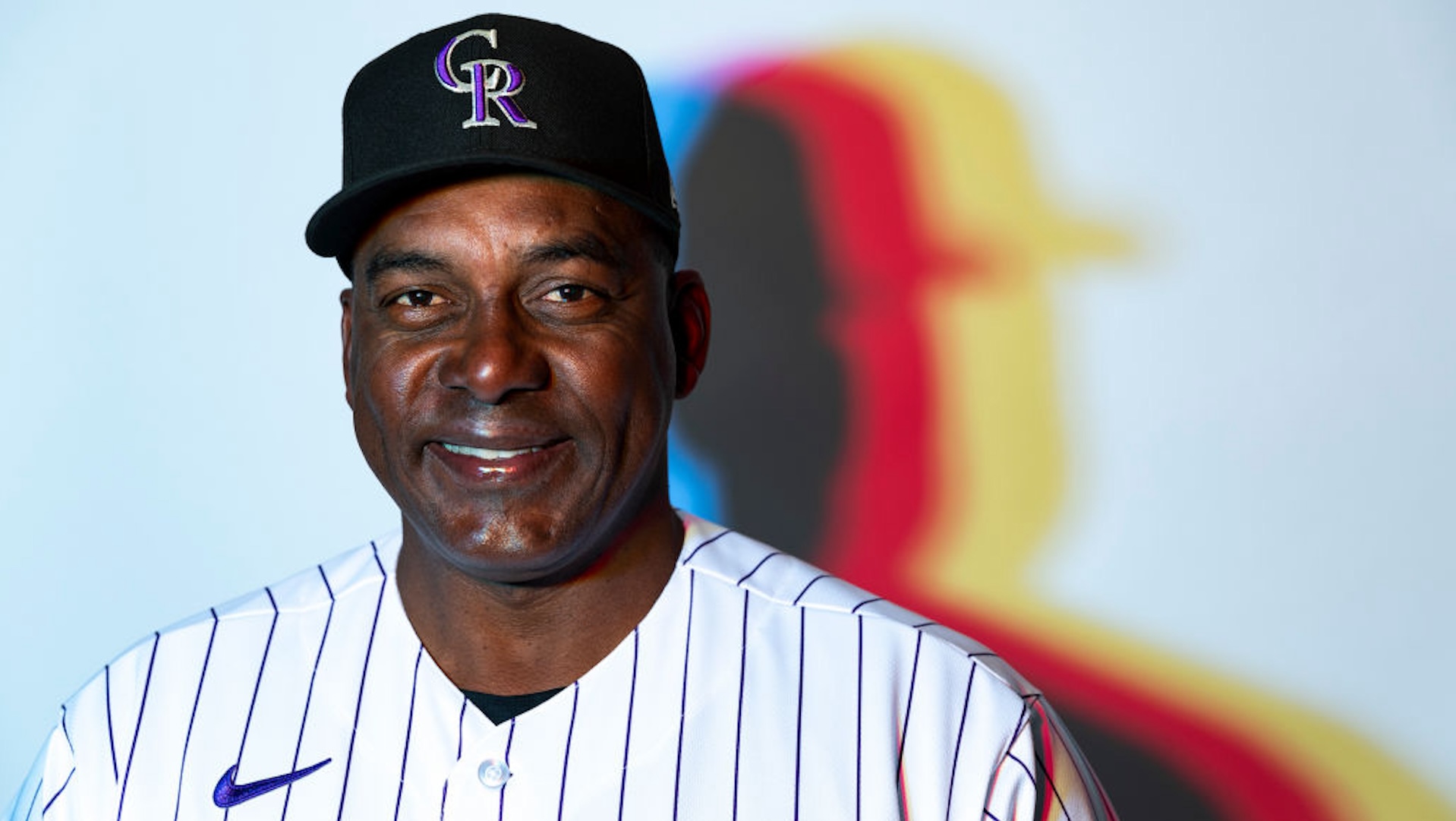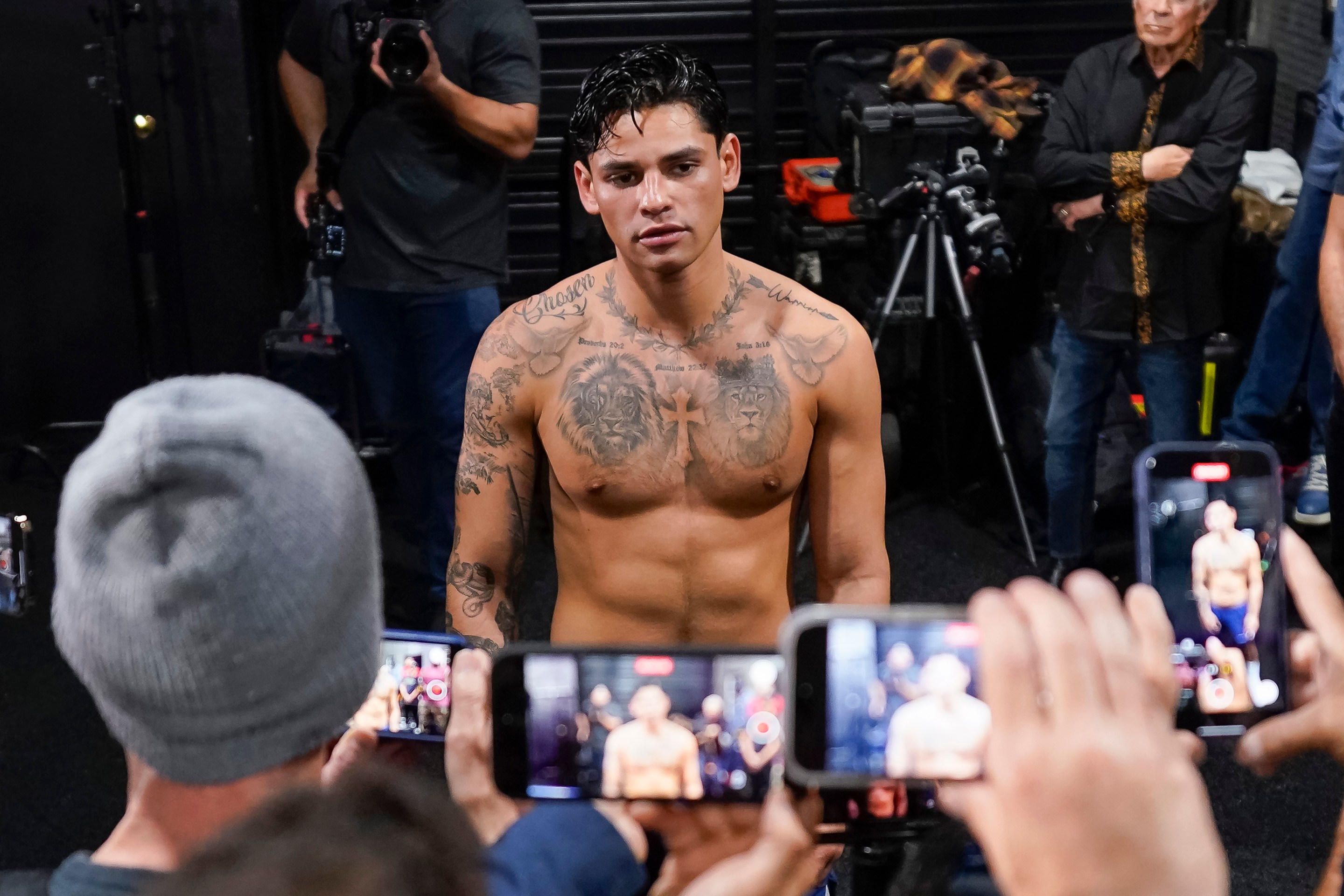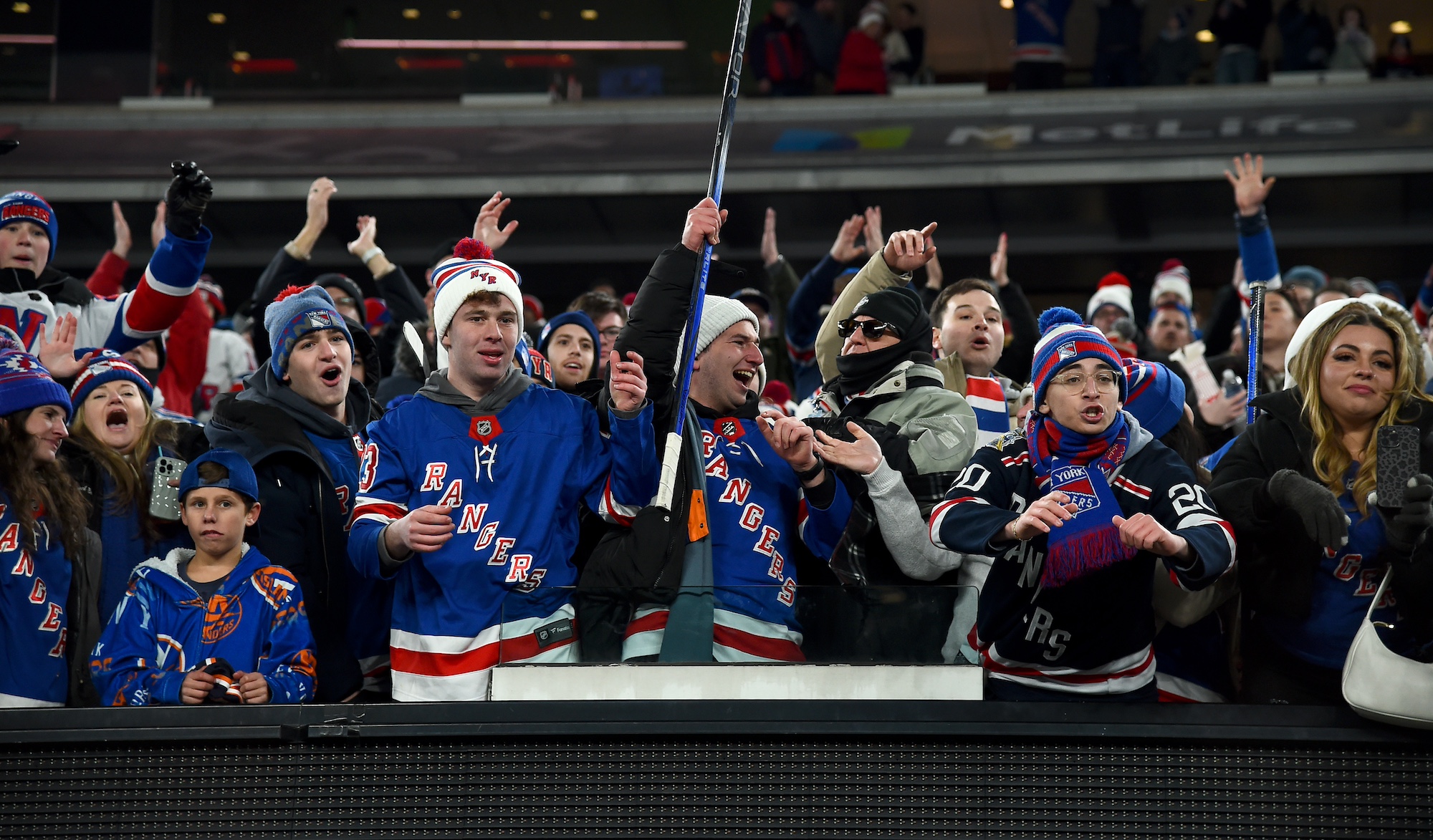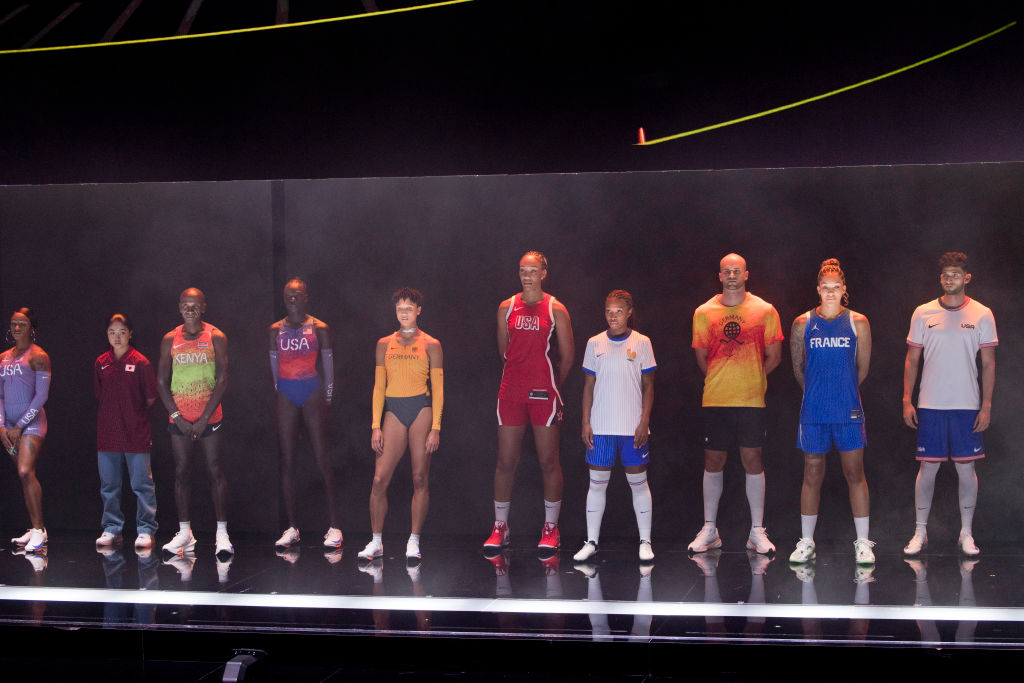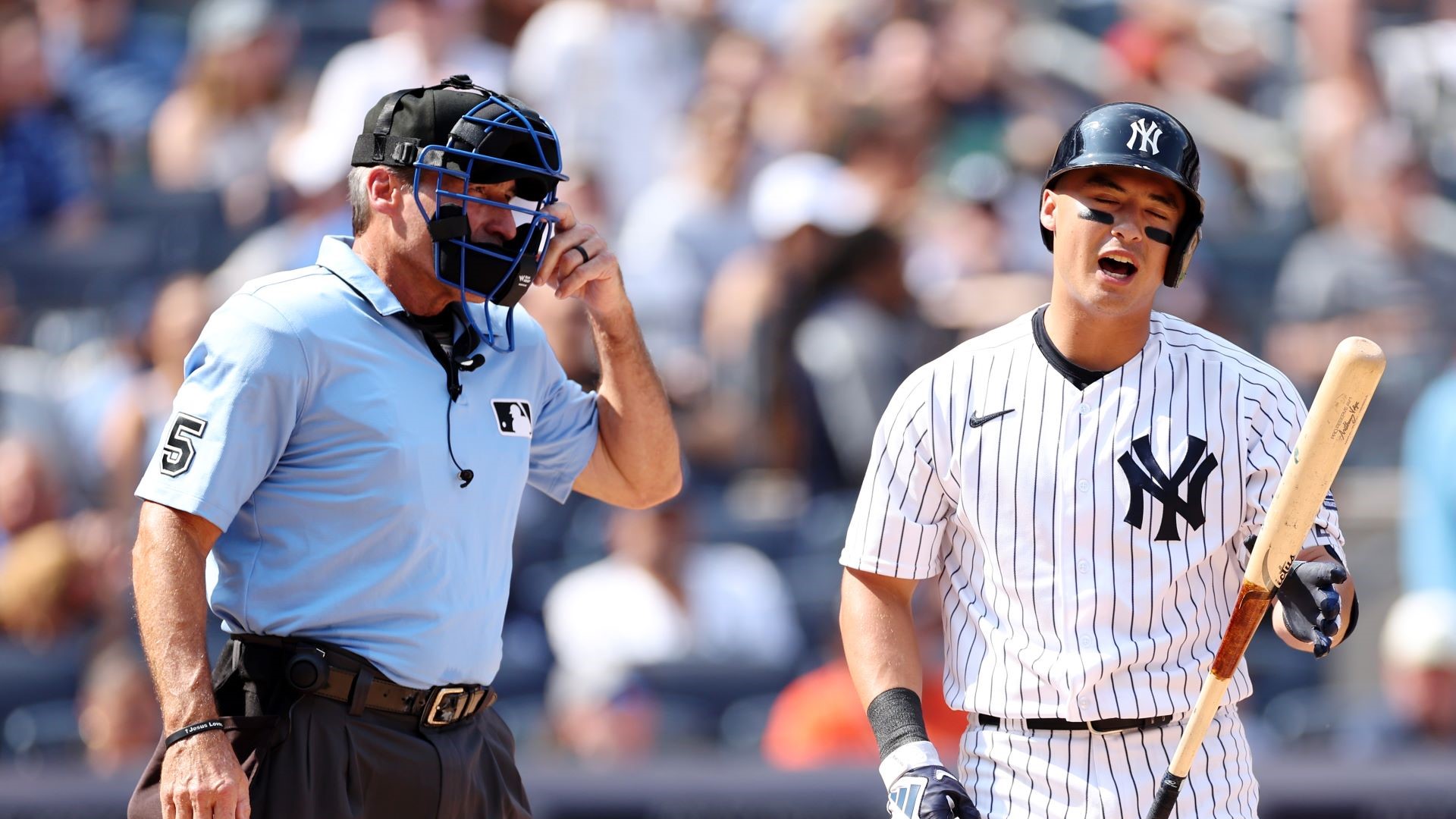After yet another in a countless series of epic matches—this one coming in the first round of an annual March tournament—the 34-year-old champion of New Japan Pro Wrestling, Kazuchika Okada, took the microphone and asked 2,007 fans in the Budokan (per English color commentator and translator Chris Charlton) for three claps if they thought he could go on to win the New Japan Cup. He followed their response with a bold, confident and loud proclamation that he would indeed achieve success, which was punctuated by some polite applause before his music hit.
If these fans in Tokyo seem like an oddly tepid example of a pro wrestling crowd, you're absolutely correct. Though Japan enjoys a COVID-19 vaccination rate around 80 percent, the restrictions on live crowds in the country remain indistinguishable from some of the darkest days of the pandemic. Capacities are limited and socially distanced (the Budokan should be able to hold in excess of 10,000), and perhaps even more dramatically, the fans are actually prohibited from cheering. Instead, they're required to express themselves exclusively through either claps or stomps.
For a while, quiet or nonexistent crowds were the norm across all live events worldwide. But as New Japan rounds the corner into its third year without cheers and chants, while promotions in America have for several months now been running like it's 2019 again, the Japanese government's ongoing hypercautious approach towards COVID has created the kind of difficulties in creating an entertaining product that should be obvious even to non-fans. In wrestling, the fans tell the stories just as much as the performers do, picking and often switching favorites, emphasizing moments of heroism or villainy, and elevating once-overlooked characters into stars. And while Japanese wrestling crowds have a reputation for restraint, treating the events more like live theater than a tailgate, they still absolutely get up for the big moments with the same enthusiasm as fans in the States.
All of that is lost, for now. Clapping and stomping show that the audience is reacting, but barring the kind of clarification Okada asked for in his promo (which is of course much more difficult to do during a match), it's tough to imbue these actions with distinct meanings. The good guys can't have their names chanted—fans can clap in a specific pattern, but that really only works if they're facing someone with a distinctly different number of syllables in his name. The heels can't be booed—they can only be met with silence, which is brutal to sit through, or a kind of droning applause that only serves to say We are not ignoring you. That New Japan is still running their shows in large buildings where these soft sounds echo sadly through empty sections only further depletes the intensity.
But no matter how the crowds sound, Okada is out there trying. As the heir to Hiroshi Tanahashi (who is kind of like the John Cena of Japan, to be reductive), "The Rainmaker" has been built up for a decade to be the face of the company, and now more than ever, after becoming world champion again in early January, this company is his to carry.
He's certainly cut out for the role. You can see, even at a glimpse, the statuesque figure he cuts and the regal way in which he presents himself, befitting a star and a champion. He looks like perfection, and he wrestles like it, too. Okada, even at the relatively young age of 34, can already make a real case for himself as the greatest of all time, (and certainly the best of his era, if that feels a little too blasphemous). He is perhaps not the easiest wrestler for a novice fan to get into, as his matches are not instantly dazzling or filled with absurdly athletic or dangerous spots. But he is a master storyteller. For years now Okada has been the king of long, slow-building matches that draw heavily on the history he has with his rivals and climax with moments that make you truly believe, even though it's "just wrestling," that Okada is the greatest athlete and champion in the world.
All three of his title defenses this year have been spectacular and have showcased various compelling sides of his character. At the second night of NJPW's premier event Wrestle Kingdom, against another real talent in Will Ospreay, he played the role of furious former mentor to his young ally-turned-heel, and the two put forth a delirious display of counters to each other's moves that hammered home just how well the student had learned from the master. Against Tetsuya Naito in February, Okada slipped into the role of heel against the older sentimental favorite, showing just enough vulnerability that I bit on Naito defying the odds before an exhausted-looking Okada pulled out the win. And then on Wednesday, against the Jr. Heavyweight champion El Desperado, Okada painted yet another masterpiece, this one the tale of a crafty little bastard and a man too proud to use all the tools at his disposal to defeat someone he saw as a physical inferior.
All of these were absolutely fabulous matches. All of them were met with muted crowd noise. In comparison with the great American matches of the post-vaccine era ... well, there's no comparison. On one side of the world, crowds are meeting superstars like CM Punk and Brock Lesnar with roaring ovations. On the other, Okada has to look out to purposely empty seats and hear the equivalent of the response a PGA golfer gets when he makes a two-foot putt for bogey. The entire year after March 2020 forced fans to consider whether wrestling can truly be wrestling without the live crowds who provide its heart. But now that so much of the world has deemed COVID restrictions unnecessary, and the contrast in New Japan is so striking, the question is tougher to ignore than ever during Okada's performances, and threatens to detract from his efforts.
New Japan was making serious inroads into the United States not all that long ago—in 2019 Okada main evented a sold-out Madison Square Garden. But with both foreign and domestic fans the product feels colder than it has since Tanahashi pulled the company out of a life-threatening slump in the late 2000s. There are plenty of possible reasons to explain New Japan's decline in popularity, including the rise of All Elite Wrestling as a significantly more accessible alternative promotion for U.S. fans, and injuries and departures of top stars hurting business at home. Personally, I also think New Japan's strict crackdown against online GIFs and videos have stymied its ability to reach anyone who's not already converted. But the crowds are a huge part of it, too, giving the promotion's events a minor-league, "less-than" feel when viewed alongside the much louder spectacles coming from WWE and AEW.
Okada, who's typically emotionally guarded outside of the ring, has done his best to continue a kind of business-as-usual attitude. In a January interview with Dave Meltzer's Wrestling Observer Radio that Okada did with Charlton as his interpreter, he put as positive a spin on the crowd problem as he could.
"We don't really want to say that he's used to it, because we want to, obviously, be back in that environment where everybody's cheering and shouting, because that's really what pro wrestling is," Charlton translated. "But it's gotten to be something that he is as used to it as he can possibly be and that the fans have gotten used to it as well, to sort of express themselves in different ways, rather than chanting."
It's the phrase "as he can possibly be" that stands out to me there. I have no doubt that, after two years and with Okada being the consummate pro that he is, he's figured out the most effective way to portray himself and perform under these frustrating circumstances. But you can never entirely be comfortable with such a drastic depressurization of atmosphere. As Okada via Charlton implied, without everybody cheering and shouting, pro wrestling isn't.
For that reason, I find a kind of melancholy nobility in what Okada is doing right now. New Japan just celebrated its 50th anniversary, and Okada the character has spoken about wanting to define this momentous year with his own unstoppable success. I don't think it takes much of a stretch to think that Okada the performer feels something similar, particularly during the actual anniversary celebrations that took place two days ago. Surrounded by legends, Okada easily stood out as the most vital and in-shape man in the ring, but also the one carrying the heaviest burden. They had all made their contributions to Japanese wrestling, but for all he's done already, Okada's toughest tasks still lie ahead.
Okada acknowledged as much in the Observer Radio interview, noting the challenges he faced in trying to reverse New Japan's recent negative momentum.
"We're in an environment, obviously there's socially distanced crowds in Japan, and they're not able to cheer or boo, and there might be a lot of fans, quite frankly, domestically and overseas, that might have moved away from the product and into something else," Charlton translated. "So it's more important than ever for Okada to be a great champion and to have these great matches and to make sure the world knows who he is and who New Japan is, so certainly the responsibility is greater now than it ever has been."
The hope, obviously, is that the COVID restrictions taper off in the near future, and that soon, the fans will be able to verbalize OH-KAH-DA instead of just CLAP-CLAP-CLAP. When that happens, it'll surely be an overwhelming moment for all the wrestlers in the company and all the dutiful fans who've continued to show up. What Okada's already proven, though, is that whether he's wrestling before 30,000 unrestrained fans or 1,500 muted ones, he's going to give them everything he's got.
If you liked this blog, please share it! Your referrals help Defector reach new readers, and those new readers always get a few free blogs before encountering our paywall.
Editor
Read More:
Stay in touch
Sign up for our free newsletter
